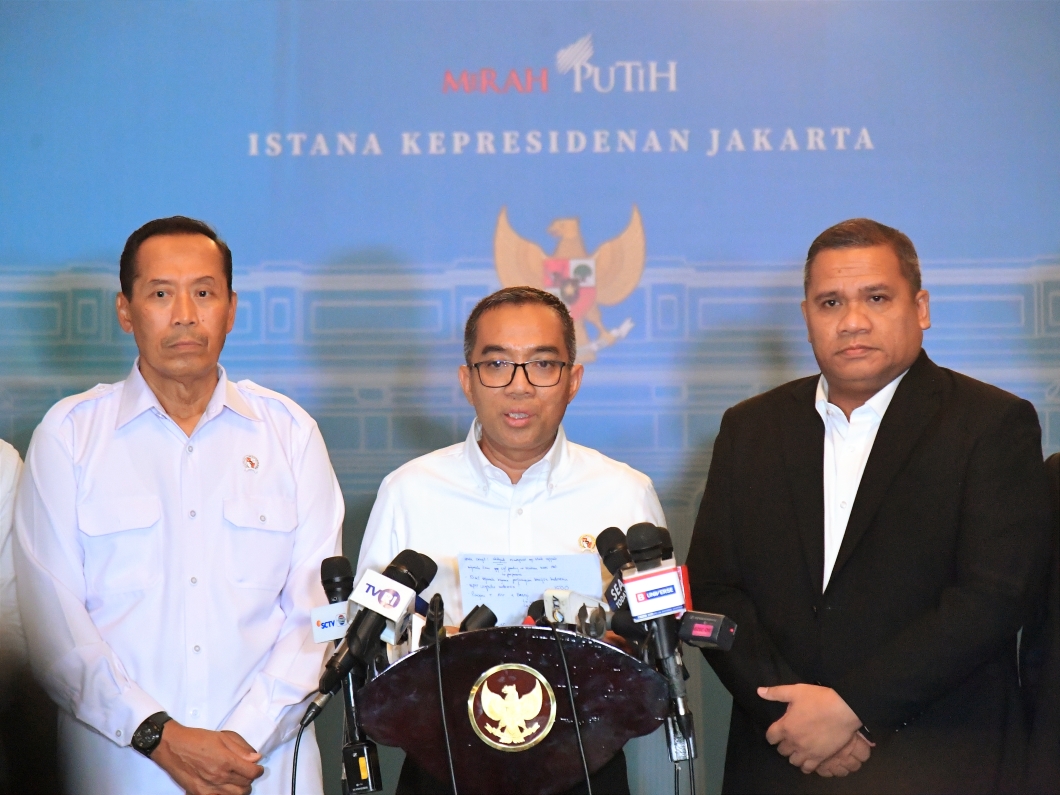ITB Studium Generale: Jakarta-Bandung High-Speed Railway, The Future of Indonesian Transportation
By Anggun Nindita
Editor Anggun Nindita

BANDUNG, itb.ac.id – The Studium Generale of Institut Teknologi Bandung (ITB) featured Didiek Hartantyo, President Director of PT Kereta Api Indonesia (Persero), as a guest speaker on the theme "Jakarta-Bandung High-Speed Railway, The Future of Indonesian Transportation." The lecture took place in the West Hall of the ITB Ganesha Campus on Wednesday, September 20, 2023.
The primary focus of the discussion was the Jakarta-Bandung High-Speed Railway (KCJB), one of Indonesia's ongoing megaprojects. This project signifies a significant collaboration between Indonesia and China, with China contributing its proven 40,000-kilometer high-speed rail network technology.
The funding structure for the KCJB project involves 60% ownership by Indonesian State-Owned Enterprises (BUMN) through PT Pilar Sinergi BUMN Indonesia (PSBI), while the remaining 40% is held by Chinese State-Owned Enterprises through Beijing Yawan HSR Co., Ltd.
The KCJB project represents a groundbreaking advancement in Indonesian transportation, chosen for its proven speed and efficiency. Initially under the leadership of PSBI, the project's commanding role was later shifted to PT KAI by the Indonesian government. PT KAI then assumed the leading sponsorship role, as stipulated in Presidential Decree 93/2021.
Financing for the project includes 25% from shareholders' equity and 75% on lease from the China Development Bank (CDB), the project lender. The project contractors are divided, with 30% handled by Indonesian state-owned contractors (such as WIKA) and 70% by Chinese contractors, based on their experience and competence in specific project segments.
Currently, the project stands at 97.82% completion, with almost all supporting infrastructure, including railways, stations, and viaducts, already in place. Spanning 142.3 kilometers, KCJB connects Halim Station in East Jakarta with Tegalluar Station in eastern Bandung.
The social and economic impacts of the project are substantial. Approximately 13,477 local residents have been engaged as the primary workforce, fostering a transfer of technology and knowledge between the two countries. Additionally, the project contributes to state revenue with Rp10.3 trillion.
Expectantly, the KCJB project will provide immense benefits to the Indonesian people by alleviating traffic congestion and offering a more efficient and environmentally friendly transportation alternative.
Reporter: Iko Sutrisko Prakasa Lay (Mathematics ‘21)
Indonesian Editor: M. Naufal Hafizh
Translator: Ariq Ramadhan Teruna (Chemical Engineering ‘21)
English Editor: Vera Citra Utami

.jpg)
.jpg)
.jpg)
.jpg)
.jpg)

